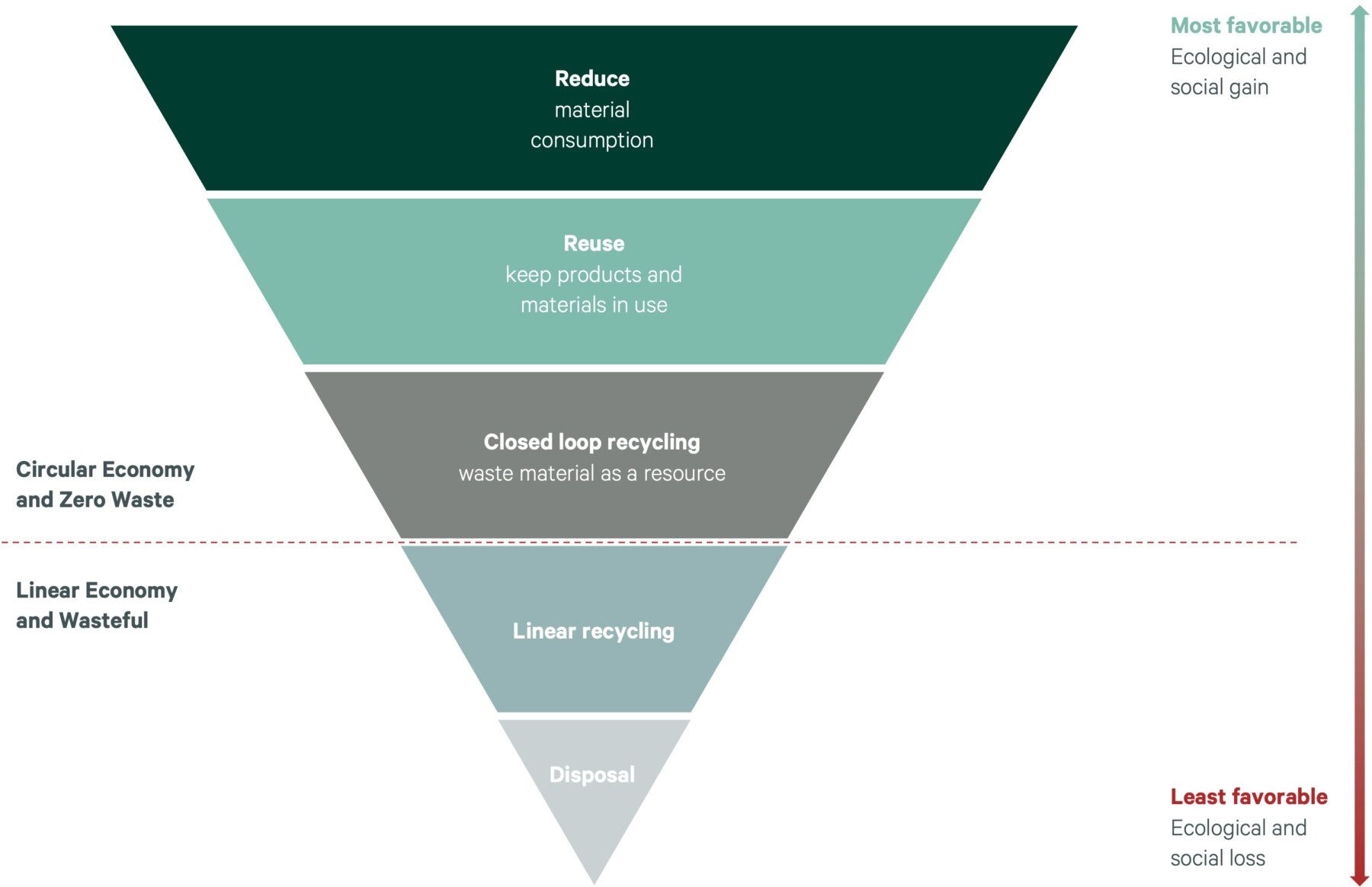Scotland's Push for Embodied Carbon
Read Time 6 mins | Written by: Alex Bantock
In the face of slow regulatory progress, Scotland's industry leaders are stepping up to tackle embodied carbon in Scotland's construction sector, promoting Whole Life Carbon approaches and sustainable practices as key to achieving Net Zero goals. Thus setting a precedent for necessary change in the built environment.
Building design and construction practises around the globe are evolving rapidly to address the critical issue of carbon. Scotland, like others in the United Kingdom (UK), has been on a path to reduce the operational carbon footprint of its built environment by decarbonising its energy grid, updating its outdated Building Regulations, and introducing the 'Heat in Buildings' strategy.
Embodied carbon emissions, however, remain unregulated, despite evidence showing that embodied carbon can contribute up to 70% of a building's total carbon emissions over its lifetime.
Embodied Carbon and the Built Environment
Embodied carbon encompasses the greenhouse gas (GHG) emissions generated in the lifecycle of building materials, from their extraction, manufacturing, and production to their transportation and installation, as well as during the upkeep, renovation, and final disposal stages. Together, the sum of the embodied carbon emissions of a building's materials determines the building's embodied carbon impact.
Although these emissions occur at every phase of a building’s life, they are most significant in the initial stages when the building is being constructed and materials are being sourced, a phase often referred to as ‘upfront’ emissions, or emissions ‘from cradle to practical completion’.
The carbon footprint of materials continues to be a factor during the building operation (through maintenance, major retrofits, and eventual demolition or deconstruction). The impact of materials at the end of their useful life varies depending on how they are disposed of or repurposed. The most favourable option is reducing material consumption through retention, with disposal to landfill being the least desirable.

Circular Economy in the built environment waste hierarchy
Zero Waste Scotland's Embodied Carbon Action
Achieving Scotland's Net Zero target for 2045 requires the inclusion of both operational and embodied carbon through a Whole Life Carbon (WLC) approach. However, addressing WLC is a complex challenge, with the drive towards Net Zero construction requiring government leadership and strong advocacy for low carbon building regulations and green building policies.
A WLC outlook will require a transformative approach to the way we plan, design, and construct buildings - all of which the industry will require specific and uniform guidance for.
In the absence of such leadership in Scotland, Zero Waste Scotland partnered with the Scottish Futures Trust and Health Facilities Scotland, to develop the Net Zero Public Sector Building Standard.
The voluntary standard is applicable across all new or major refurbishment construction projects and is focused on delivering buildings that meet six Net Zero outcomes, with embodied carbon being a significant one.
The overall aim is to minimise building embodied carbon through the encouragement of what is considered current best practice:
- Options appraisal
- Life Cycle Assessment (LCA)
- The measurement, targeting and reporting of WLC impacts
- Cut operational energy use
- Support growth and flexibility of zero emissions energy supplies
- Deliver an improved experience for building users through a focus on improving comfort conditions, air quality and availability of natural lighting
- Collect and share data in open, interoperable, and transparent formats
Use Preoptima for real-time design optioneering and WLC assessments
Embodied Carbon Reports
The theme of laggard government regulations is unfortunately a common one in regions across the globe. A frustrating fact given that there is an encouraging number of tools and databases on offer to measure and reduce embodied carbon.
In light of this, Zero Waste Scotland (in collaboration with other industry partners) has also produced three reports that identify and outline the problems Scotland and the rest of the world are facing regarding embodied carbon and potential solutions to overcome these issues.
Preoptima is proud to say that two of our co-founders, Prof. Francesco Pomponi and Dr. Bernardino D'Amico, helped author two of these documents.
.png?width=680&height=383&name=The%20Reports%20%20(1).png)
The "Embodied Carbon: Status Quo and Suggested Roadmap" report aims to provide Zero Waste Scotland with an understanding of the construction industry's current standing regarding embodied carbon, and the support required for advancement. It includes an overview of embodied carbon, evaluation tools, gaps and solutions that exist, sector viewpoints, and strategic steps for Zero Waste Scotland.
The "Regulating Embodied Carbon in the Built Environment" report identifies essential information and actions that Zero Waste Scotland needs to develop regulatory proposals for managing embodied carbon, to help meet the Scottish Government's carbon reduction goals.
Lastly, "Regulating Embodied Carbon in Scotland’s Buildings" highlights the increasing international awareness of the importance of upfront embodied carbon emissions from building construction and advocates for the necessary regulatory measures.
Scotland's Outlook
Despite embodied carbon having to date been sidelined to the shadows, the evidence is clear and indisputable: if we proceed to avoid addressing embodied carbon, we do not have a Net Zero future. Plain and simple.
Therefore, as Scotland progresses in energy efficiency, the spotlight needs to turn to encompass embodied carbon emissions. Addressing embodied carbon is no longer optional but a necessity in Scotland's Net Zero strategy (and Net Zero strategies globally).
To deliver Scotland's ambitious target, actors in the sector must show leadership and demonstrate what can be achieved. And key organisations like Zero Waste Scotland are thankfully doing just that.
Resources
- Built Environment and Embodied Carbon (Zero Waste Scotland)
- Net Zero Public Sector Buildings Standard (Scottish Government)
- Embodied Carbon: Status Quo and Suggested Roadmap (Zero Waste Scotland)
- Regulating Embodied Carbon in the Built Environment (Zero Waste Scotland)
- Regulating Embodied Carbon in Scotland’s Buildings (Zero Waste Scotland)
We'd love to hear from you!

